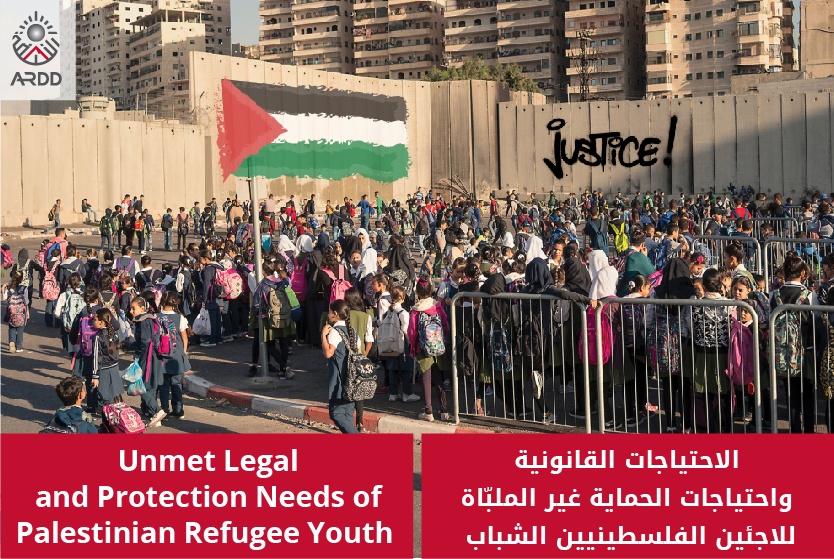ARDD is committed to elevating the voices of Palestinian youth in the region and empowering them to achieve positive change in their communities. This study, which is part of that commitment, was an exploratory investigation into the unmet legal aid needs of Palestinian refugee youth living in camps in Jordan, Lebanon, and the Occupied Territories of the West Bank and Gaza. This report builds on a series of reports and briefs by ARDD on Palestinian Refugee Youth which highlighted the overall situation, needs, and aspirations of Palestinian refugee youth in camps in Jordan and the region.
As part of ARDD’s commitment to engaging with and empowering young Palestinians, this report built on a one-month pilot aimed at training three young researchers from Palestinian communities on social action research.
The questionnaire at the base of this study was developed in collaboration with the three young researchers. It sought to understand perceptions of demand and supply of legal aid services from the point of view of Palestinian youth in the region. The target respondents included youth aged between 15 to 29 as well as adults over the age of 33 years in order to obtain insight into the lifecycle of legal needs experienced by Palestinian youth. The questionnaire asked respondents about what they perceived were the most pressing legal needs of Palestinian youth and to what extent legal services were available to meet these needs.
The questionnaire built on ARDD’s understanding of access to justice, which encompasses all the elements needed to enable citizens and residents to seek redress for their grievances and to demand that their rights are upheld. In its work, ARDD adopts and adapts the six elements, namely: justiciability, availability, accessibility, good quality, provision of remedies for victims and accountability of justice systems. Adapting these elements to understand youth’s perceptions of access to justice, the questionnaire explored issues of availability, affordability, and quality of services.
The report presented three main recommendations concerning raising the legal awareness of Palestinian refugee youth, providing legal aid services to them and for greater inclusion and representation of Palestinian youth in all processes that impact them. This includes having a youth-oriented approach to research and data collection. Service providers must continue to engage youth in the research, design and implementation of projects addressing their situation.


